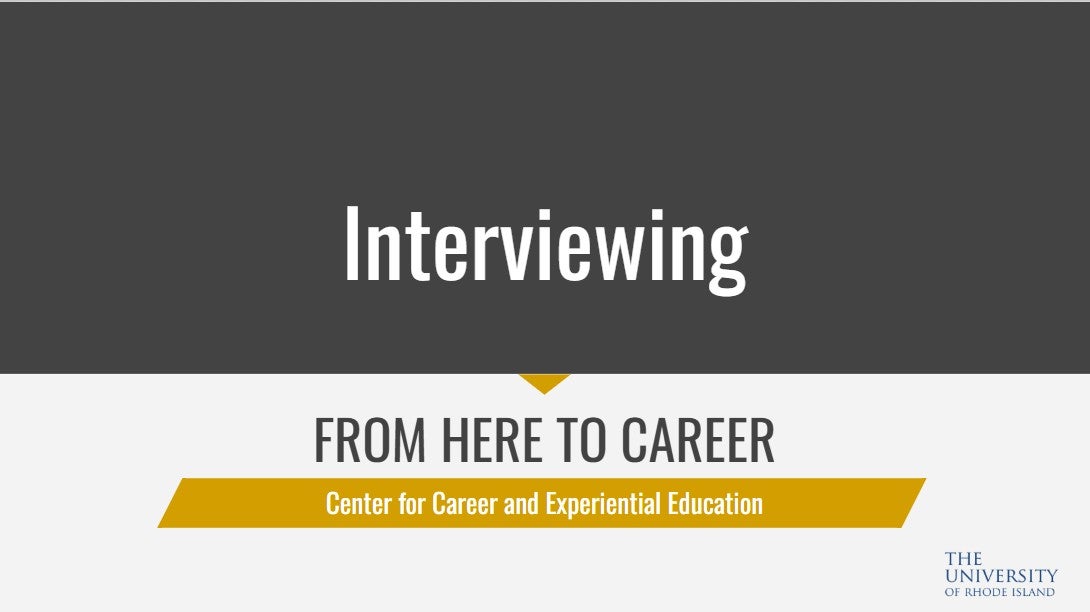Health professional schools or programs offer interviews to applicants they believe might be a good fit for their program after reviewing their primary application and personal statement, secondary application, letters of recommendation, and test scores.
These interviews typically begin as early as August of the application year, extend through the winter and spring, and can even last into the summer months, depending on whether a school’s incoming class has been filled.
Interviews will vary in nature from school to school and may continue to change moving forward as decisions whether to hold in-person or virtual interviews evolve. We strongly encourage you to review the resources available for your program:
- Medical school: AAMC’s MSAR Report on Interview Procedures for centralized information about school-specific procedures.
- PA: Review each individual program.
- Dentistry: ASDA offers interviewing virtual workshops and more guidance
Regardless of the format of one’s interview, the purpose of the interviewing process is to assess a candidate’s level of interest in the school and their program; their fit with the current faculty, staff, and student population; and the potential a candidate presents for success in the medical field.
Additionally, think of the interview as a way to demonstrate proficiency in the core competencies; not only is it a way to exhibit strength in terms of communication, it is also a way to draw out and play up the strengths you’ve highlighted throughout your application with added examples and rich detail.
How to Prepare:
There are two types of interview formats you’ll need to be ready for once the season begins:
- Traditional interviews are one-on-one or group conversations between you and program representatives. Topics covered during the interview typically include: your background, motivation, depth and breadth of interests, hot topics in healthcare, ethics, empathy, teamwork, and relevant experience.
- Multiple Mini Interviews (MMIs) are a series of short, structured interview “stations” involving live and/or prepared scenarios to which you must respond within a specified, limited time frame. Topics covered typically include: ethical decision making, critical thinking skills, communication skills, and current healthcare and societal issues.
- All-Day Interviews (most PA programs): PA programs usually will have all day interviews, from around 9AM – 4PM. The entire day will be a working interview, which normally consists of a presentation of the program with information on the curriculum, a group case study/scenario, a tour of the facility, MMI’s, and one-on-one interviews. See our PA interviewing guide for a sample of questions to prepare for.
Once you know what the format of your interview will be, our office suggests that applicants practice their interviewing skills. Use any of the resouces here on this page to get as much interviewing practice as possible.
Keep in mind that admissions committees/interviewers are likely to remember only three to four key takeaways from each interview, so it is important to identify what you’d like those to be ahead of time and come prepared to communicate them effectively and concisely.
To perform your own self-assessment, develop answers to the following questions:
- What are the main pieces of information I want to make sure I cover during my interview?
- What core competencies and other skills do I want to demonstrate that I have during my interview? Do I have stories/examples to back them up?
- What makes me unique in comparison to other candidates?
- Have I reviewed my application materials ahead of time to refresh myself on what committees could ask me about? Am I able to elaborate on everything included in my application materials without being repetitive?
- How do my values, interests, and skills align with this particular program?
- Can I explain my research in a way that is accessible to others?
In addition to performing a self-assessment, you also want to ensure that you have thoroughly researched the school and program you are interviewing for.
Use the school’s website, their social media, national and regional associations and news outlets to know about each school’s:
- Missions and values
- Program curriculum and experiential learning opportunities
- Student organizations, service opportunities, etc.
- Key faculty and staff; associated faculty research topics
- Any recent recognition or news
Practice interviewing:
While it’s one thing to prepare for an interview, it’s also important to practice. Students can make an appointment with their Career Education Specialist to practice their interviewing skills, but should also consider online resources including the audio functionality in Generative AI (like Co-Pilot), or systems like Yoodli or Big Interview.
Support your preparation with the resources below:
- Practice interviewing with your Career Education Specialist
- PA Interviewing Guide
- Preparing for Medical School Interviews
- How to Ace Medical School Interviews (Questions Included)
- MMI Interview: The Ultimate Guide
- Tips for Interview Day from Current Medical Students

